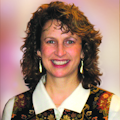
I’m waiting expectantly for next week. That’s when the results of the first of Nokia’s two consecutive Sensing XCHALLENGE competitions will be announced, during the Health 2.0 Fall Conference (October 2, 2013, in Santa Clara, CA). Among the 12 finalists are a number of teams developing photonics-based technologies, including Holomic LLC (Los Angeles, CA), which showcased its cellphone-based rapid diagnostic-test reader product in addition to other cellphone-based technologies that the company has licensed from the University of California Los Angeles (UCLA): a microscope, flow cytometer, blood analyzer, and allergen detector.
Another finalist is ELFI-TECH Ltd. (Rehovot, Israel), which entered what business development manager Erez Herman calls the first biomedical implementation of dynamic light scattering for the measurement of blood rheology and vascular health. And nanoLambda Inc. (Pittsburgh, PA) entered its “apollo” sensor platform, which it claims is the world’s smallest spectrometer-on-a-chip and also highly affordable—able to detect personal vital and health signals noninvasively and continuously.
Entrants are competing for a $525,000 Grand Prize or a $120,000 Distinguished Award. The XCHALLENGE program aims to facilitate sensing innovations able to promote personal health; the organizers say that the technologies resulting from their $2.25 million competition program will help lay the foundation for a mobile health revolution.
According to Nokia CTO and EVP Henry Tirri, the market has seen lots of activity around health and fitness applications, but medical diagnostic and sensing technologies for consumers remain scarce. However, he noted, the competition has highlighted developments in consumer-focused applications and technologies “that will potentially transform the way healthcare is delivered across the globe on multiple levels including monitoring, prevention, diagnosis, and disease management.”
About the Author

Barbara Gefvert
Editor-in-Chief, BioOptics World (2008-2020)
Barbara G. Gefvert has been a science and technology editor and writer since 1987, and served as editor in chief on multiple publications, including Sensors magazine for nearly a decade.